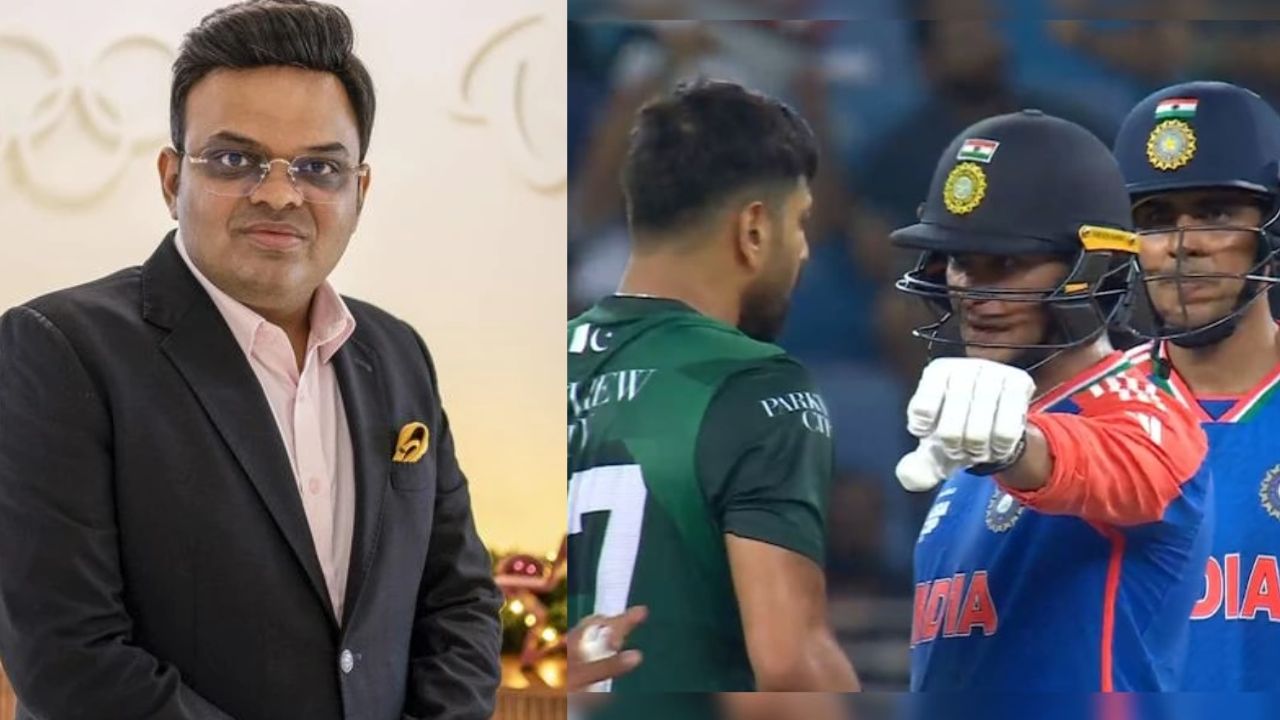
ICC Banned This Player: आईसीसी अक्सर खिलाड़ियों पर गंदे व्यवहार और नियमों के उल्लंघन के सम्बन्ध में दंड देती रहती है, ताकि उन पर लगाम लगाई जा सके। इस बार आईसीसी के फंदे में एक पाकिस्तानी खिलाड़ी फंस गया, जिसे अब चेयरमैन जय शाह ने दो मैचों के लिए बैन कर दिया है।
इस पाकिस्तानी खिलाड़ी ने क्या गंदी हरकत थी और यह पूरा मामला क्या है, इसके बारे में हम आपको आगे विस्तार से बताने जा रहे हैं।
ICC ने पाकिस्तानी खिलाड़ी के खिलाफ लिया कड़ा एक्शन

दरअसल, आईसीसी ने जिस पाकिस्तानी खिलाड़ी को 2 मैचों के लिए बैन किया है, वो कोई और नहीं, तेज गेंदबाज हारिस रऊफ हैं। रऊफ ने एशिया कप 2025 के दौरान भारत के खिलाफ 14 और 28 सितंबर को हुए मैचों में कई बार विवादित इशारे किए और उनकी भारतीय खिलाड़ियों से झड़प भी देखने को मिली। हर बार, अपराध आईसीसी आचार संहिता की धारा 2.21 का उल्लंघन था, जो खेल की प्रतिष्ठा को ठेस पहुंचाने से संबंधित है। इसी वजह से उनके खाते में चार डिमेरिट अंक हो गए।
हारिस रऊफ ने दोनों ही मौकों पर आरोप स्वीकार नहीं किए, इसलिए औपचारिक सुनवाई हुई और उसके बाद उन पर प्रतिबंध लगा दिया गया है। 24 महीने की अवधि में किसी खिलाड़ी के चार डिमेरिट अंक जमा होने पर, उस पर दो मैचों का निलंबन स्वतः ही लागू हो जाता है।
बैन के कारण दक्षिण अफ्रीका के खिलाफ पहले 2 वनडे नहीं खेल पाएंगे रऊफ
हारिस रऊफ पर आईसीसी ने दो मैच का बैन लगाया है, इसी वजह से वो मंगलवार (4 नवंबर) को दक्षिण अफ्रीका के खिलाफ खेली जा रही 3 मैचों की घरेलू वनडे सीरीज के पहले मैच का हिस्सा नहीं बन पाए। बैन के कारण रऊफ 6 नवंबर को होने वाले वनडे मुकाबले से भी बाहर रहेंगे।
हालांकि, पहले मैच में पाकिस्तान को रऊफ की कमी के बावजूद 2 विकेट से रोमांचक जीत हासिल हुई। अब उसकी नजर दूसरा वनडे अपने नाम कर सीरीज में अजेय बढ़त लेने की होगी।
इन खिलाड़ियों पर भी ICC ने लिया एक्शन
एशिया कप के दौरान पाकिस्तान के साहिबजादा फरहान ने फिफ्टी पूरी करने के बाद गन सेलिब्रेशन किया था। इसके लिए आईसीसी ने उन पर कोई जुर्माना या बैन नहीं लगाया है लेकिन उन्हें कड़ी फटकार जरूर लगाई है और एक डिमेरिट पॉइंट भी उनके खाते में जुड़ गया है।
कुछ ऐसा ही भारतीय तेज गेंदबाज जसप्रीत बुमराह के साथ भी हुआ है। उन्होंने फाइनल में फाइटर जेट के नीचे गिरने का इशारा किया था। इसी वजह से आईसीसी ने उनके खाते में भी एक डिमेरिट पॉइंट जोड़ दिया है। हालांकि, तेज गेंदबाज अर्शदीप सिंह किसी भी मामले में दोषी नहीं पाए गए हैं और उनके खिलाफ आईसीसी ने कोई भी एक्शन नहीं लिया है।
वहीं, 14 सितंबर को पाकिस्तान के खिलाफ जीत के बाद, भारतीय कप्तान सूर्यकुमार यादव ने जो बयान दिया था, उसके लिए उन पर आईसीसी ने एक्शन लेते हुए दो डिमेरिट पॉइंट दिए हैं। सूर्या पर मैच फीस का 30 प्रतिशत उसी समय जुर्माना लगा दिया गया था लेकिन डिमेरिट पॉइंट की जानकारी अब सार्वजनिक की गई है।
FAQs
ICC ने पाकिस्तान के किस खिलाड़ी को 2 मैच के लिए बैन किया है?
ICC ने किस गलती के लिए हारिस रऊफ को बैन किया है?
यह भी पढ़ें: IND vs AUS: चौथे टी20 में भी इस फ्लॉप खिलाड़ी को मौका देने की जिद्द में अड़े कोच गंभीर, कप्तान सूर्या निकालना चाहते बाहर
The post इस खिलाड़ी की गंदी हरकत पर फूटा ICC चेयरमैन जय शाह का गुस्सा, 2 मैचों के लिए कर दिया बैन appeared first on khelja.
